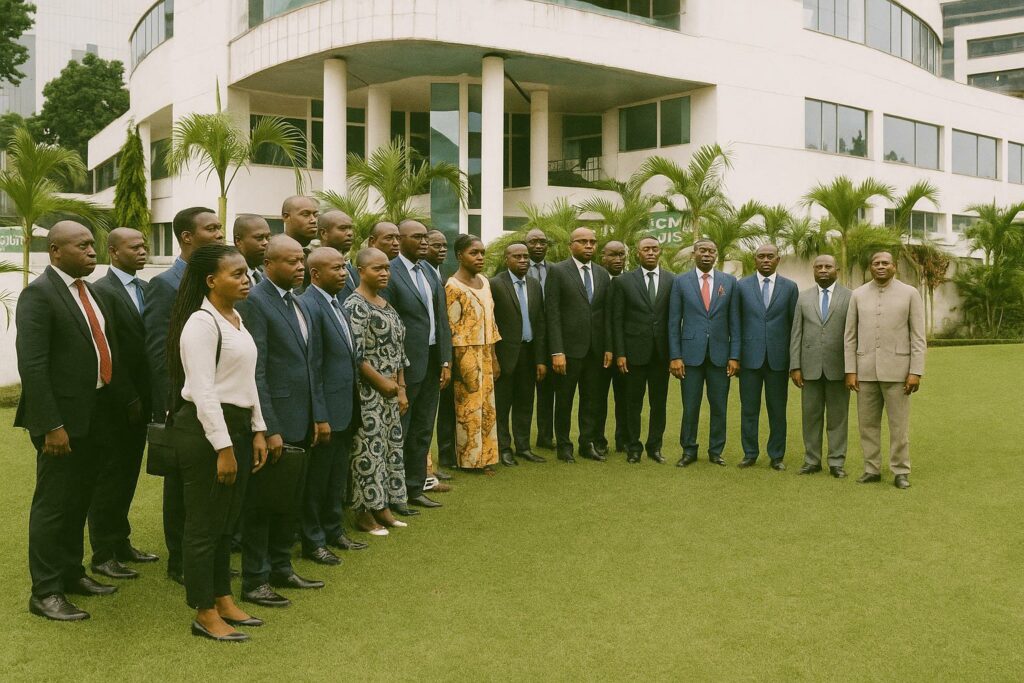Youth Strategic Blueprint Gains Multilateral Endorsement
In a ceremony that underscored both symbolism and substance, senior officials from Brazzaville and representatives of UNESCO jointly endorsed the National Youth Policy. Charles Mackaya, speaking for the Ministry of Youth and Sports, framed the document as “both a planning tool and a public compass” capable of translating aspiration into measurable outcomes. UNESCO’s regional bureau, whose technical advisers had accompanied the drafting process for nearly eighteen months, described the text as a model of evidence-based policymaking (UNESCO 2023).
Demographic Dividend and Institutional Commitments
Nearly two Congolese in three are below the age of thirty, according to the National Institute of Statistics. Harnessing such a demographic wave demands institutional clarity, a point also emphasised by Émile Eba from the Ministry of Economy. He argued that a rigorous diagnostic, ranging from labour-market mismatch to climate vulnerability, must inform every line of action. The document therefore pledges to create an observatory to monitor youth indicators, an approach broadly aligned with African Union recommendations on demographic dividend management (African Union 2022).
Convergence with Agenda 2063 and Global Sustainable Goals
Beyond national imperatives, the policy situates Congo-Brazzaville within wider continental and multilateral frameworks. By prioritising quality education, gender parity and decent work, it mirrors targets embedded in SDG 4 and SDG 8 while echoing the aspirational Agenda 2063 clause that calls for Africa to be “an empowered continent whose development is people-driven”. UNESCO analysts note that such normative alignment can unlock concessional financing and technical grants, a lever the government is keen to activate while preserving policy ownership.
Economic Diversification and Digital Skills Imperative
The economy’s heavy reliance on hydrocarbons has historically limited employment elasticity. The new roadmap therefore puts digital literacy, agribusiness incubation and creative industries at the centre of its employment pillar. A recent World Bank brief estimates that the digital sector alone could contribute up to 4 percent of Congolese GDP by 2030 if adequately skilling programmes are deployed (World Bank 2024). Officials argue that the forthcoming national startup fund, capitalised through a sovereign guarantee, will complement the existing Bank for Small and Medium Enterprises and thus foster a pipeline of youth-led ventures.
Civic Engagement and Social Cohesion Architecture
Beyond economics, the policy elevates citizenship education and community service. Inspired by UNESCO’s Global Citizenship Education framework, the government plans to integrate participatory budgeting modules into secondary curricula. Civil-society actors welcomed the move, noting that youth engagement reduces the risk of manipulation and enhances resilience in an age of digital disinformation (ISS Africa 2023). In Mackaya’s words, “investing in youth is not merely a demographic obligation; it is the cornerstone of a stable and prosperous Congo.”
Financing, Monitoring and the Road Ahead
Initial implementation will draw on a multi-year envelope of 120 billion CFA francs, synchronised with the National Development Plan. A joint steering committee, co-chaired by the ministries of Youth and Economy, is tasked with publishing annual scorecards that will track progress across empowerment, inclusion and well-being indicators. Diplomatic observers in Brazzaville view this governance mechanism as a litmus test for the state’s broader reform credibility. For now, the confluence of political will, multilateral backing and demographic urgency suggests an unusually favourable alignment. Whether the ambitions engraved in the policy translate into livelihoods and civic vitality will ultimately define the legacy of the current administration’s youth agenda.

